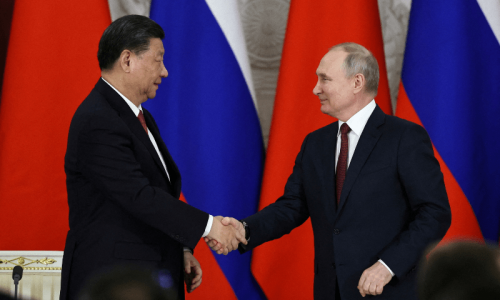NOUAKCHOTT: Born a slave, like his entire family, Matalla Mbreik toiled from dawn to dusk selling water and tending his master's flocks on the lonely fringes of the Saharan desert, until he could take no more.
“I still have the scars from my beatings, like my mother and sisters,” said the 32-year-old Mauritanian, staring at the floor, dressed in flowing pale-blue embroidered robes. “All they gave us to eat were leftovers.”
After years spent dreaming of escape, Mbreik seized his chance two months ago when a Mauritanian army truck passed him searching for an oasis in the desert.
“I told them to shoot me rather than take me back to my master,” said Mbreik, red-faced with shame, sitting in the office of anti-slavery group SOS-Slave.
Although banned by law in 1980, slavery in Mauritania has persisted, perpetuated by poverty and rigid customs. Authorities long denied its existence but campaigners estimate there are still hundreds of thousands of slaves among the 3 million population -- the highest ratio in the world.
Chattel slavery, where one person is the property of another, has existed in the impoverished West African country for more than 800 years, since Arab-Berber raiders swept across the Sahara to subjugate black African tribes.
Traditionally, members of the haratin slave caste must marry who their masters say and can be given as gifts, bought and sold, or presented to the poor as charity.
Children are often separated from their mothers and sent to work in other homes. Girls frequently suffer sexual abuse.
“Westerners think of slaves as people in chains,” said Boubacar Messaoud, head of SOS-Slave. “Slaves here have no need to be chained up because they are educated in submission. They are chained in their heads.”
Just as Christianity was once used to justify the trans-Atlantic slave trade, rights workers say many Muslim teachers, or marabouts, in Mauritania preach subservience.
“Paradise under your master's foot” is a Mauritanian saying.
“If my master had been kind, I would not have left him,” said Mbreik.
The International Day for the Abolition of Slavery on Dec 2 marks the landmark 1949 UN convention against people trafficking. —Reuters











































Dear visitor, the comments section is undergoing an overhaul and will return soon.